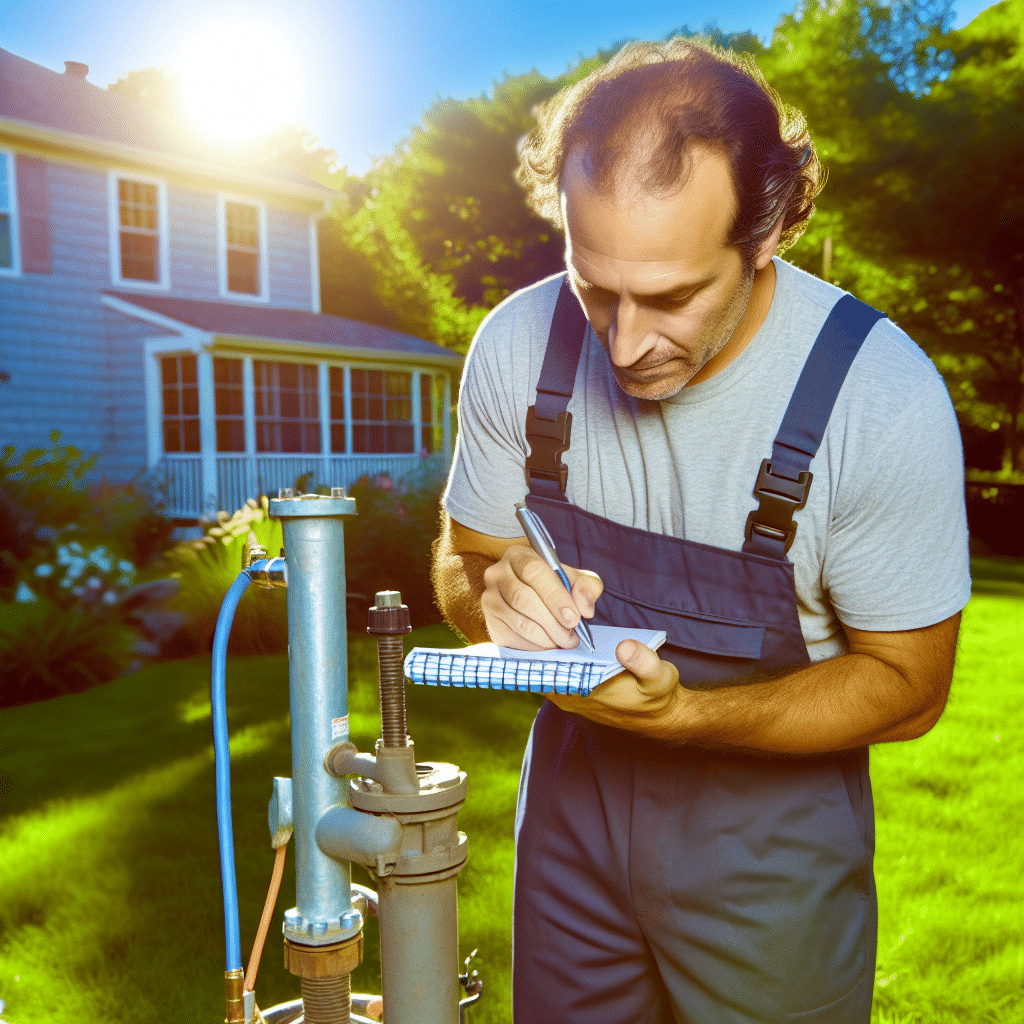Understanding Well Pump Replacement Costs
When your well pump starts showing signs of malfunction, the clock starts ticking on both functionality and finances. Immediate attention to these early warnings isn’t just about convenience; it’s about curbing costs before they escalate into a well of financial worry. Many homeowners may not realize that a struggling well pump can lead to spiraling effects, extending from reduced water pressure to complete system failure. Ignoring these initial symptoms doesn’t just risk your water supply—it risks your wallet too, as the expense of emergency repairs or full-scale replacements can be steep. Acting swiftly at the first hint of trouble can be the difference between a manageable repair bill and a daunting replacement invoice.
Planning Ahead Can Save You Thousands
But what does prompt action look like and how does one measure the true “well pump replacement cost”? It begins with recognizing unusual noises or fluctuations in water delivery as more than mere annoyances; these are the whisperings of your pump begging for attention. This foresight isn’t about paranoia; it’s a pragmatic step in what should be a routine check-up for one of your home’s vital utilities. The question of “repair now or replace later?” is a balance of current inconvenience against future fiscal burdens. A well-timed replacement not just restores peace of mind but also presents an opportunity to upgrade to a more efficient system, potentially lowering the overall operational costs.
Informed Decisions Ensure Water And Financial Security
The strategy, however, extends beyond the pump itself; it’s about embedding a cost-conscious mindset into the overall maintenance of your property’s water system. Integrating the primary keyword—well pump replacement cost—into the dialogue of home improvement positions this issue as not merely a necessary fix, but as a proactive investment. Making the informed decision to replace a faltering pump is a testament to savvy homeownership and long-term planning. It is a decision that emphasizes the significance of securing a constant, clean water supply and safeguarding one’s financial security from the unpredictable expenses of emergency repairs. At the core, understanding the true cost of replacement is empowering, paving the way for responsible and informed property management.
Deciphering the Factors Affecting Replacement Costs
The true cost of a well pump replacement is not a one-size-fits-all figure and is influenced by a myriad of factors. Understanding the complexity of these costs is essential, from the type of well pump system currently in place to the depth and quality of your well. Specific factors, such as whether you require a submersible well pump or a jet pump, can significantly sway the final price. Labor rates too play a crucial role, with some regions demanding a higher fee for skilled installation services. It’s no secret that prices can vary, so getting a transparent cost breakdown from trusted professionals is imperative.
Diligent Maintenance: A Path to Cost Savings
A robust routine maintenance program can be the secret to averting hefty replacement costs down the line. Simple practices like conducting regular inspections for any signs of wear and tear can nip costly issues in the bud. Debris accumulation in wells, for instance, can strain your pump and shorten its lifespan. Regular upkeep, coupled with a vigilant eye on performance, ensures that small tweaks don’t turn into expensive overhauls. Homeowners equipped with a solid maintenance plan are often spared from the sticker shock of sudden pump failures and replacements.
Tech Advances: Investing in Efficiency
Progress in technology isn’t just about gadgets and apps—it also applies to the mechanics of a well pump. Investing in the latest well pump technology not just brings about operational efficiency, but also reflects in your energy bills and the longevity of the system. These modern pumps are designed to provide a level of performance older models simply can’t match, which translates into savings over time. It’s much like choosing to replace inefficient windows in a home—not only for immediate comfort but for future cost-effectiveness. And with knowledgeable experts on your side, embracing the best in well pump technology becomes a wise decision for both property care and financial management.
Expertise in Action: Making the Right Replacement Choice
Navigating the decision between repairing and replacing a well pump requires an evaluation of several factors. Expert assessment can determine whether a repair will extend a pump’s life significantly or if it’s merely postponing an inevitable replacement. A pump exhibiting frequent failures may signal that repairs are less economical in the long term. Estimating the total cost of ownership, including potential future repairs, can guide the decision towards investing in a new, reliable system. Professional advice is critical, particularly when considering the disruptive nature of water supply issues.
Service Quality Assurance: Trusting in Professionals
Selecting the right professionals for well pump replacement is just as critical as the decision to replace the unit itself. Look for service providers that bring both knowledge and transparency to the table, ensuring there are no hidden costs in the installation process. Longstanding expertise and a strong local reputation go a long way in assuring service quality. Remember, a well-executed pump installation isn’t just about immediate results but the longevity and reliability of your water supply system. Reference to local experts familiar with both Middletown terrain and well system intricacies is a valuable asset.
Concluding Thoughts: Understanding and Preparing for Costs
In wrapping up, the understanding of well pump replacement costs is about making informed, preemptive decisions for your home. A thorough grasp of potential expenses empowers owners to plan, budget, and act before emergency situations dictate costly outcomes. The transparency offered by reputable service providers, combined with homeowner vigilance, can significantly reduce financial uncertainties. Being prepared may not eliminate the need for a replacement, but it ensures that when the time comes, the process is managed with financial savvy and peace of mind. Homeowners can take solace in their knowledge and preparedness, confident that they have optimized both cost and water system efficacy for their property.
Key Insights for Well Pump Care
Tip 1:
Be vigilant to changes in water pressure, as this can often be your first clue to potential issues with your well pump. Regularly monitoring pressure can prevent costly repairs and replacements.
Tip 2:
Understand the life expectancy of your well pump. Most well pumps last around 10-15 years, so if your pump is approaching this age, it may be more cost-effective to replace rather than repair.
Tip 3:
Invest in annual maintenance checks to identify minor issues before they become major. This can include inspecting pump components, cleaning filters, and checking the electrical connections.
Tip 4:
Research your area’s average replacement costs and factors that may affect pricing, such as type of pump and labor rates, so you can budget accordingly for the possibility of a well pump replacement.
Tip 5:
Consider the efficiency of newer pump models as an investment in long-term savings. Up-to-date technology can often offset initial replacement costs by reducing energy costs and minimizing future repairs.
Your Well Pump Replacement Questions Answered
1. What are the signs my well pump may need replacing, and how does this impact cost?
Decreased water pressure, odd noises, or inconsistent water supply can indicate it’s time for a replacement. Ignoring these signs can lead to increased costs due to more complex repairs or urgency fees.
2. How often should well pumps be serviced, and what are the long-term savings?
Regular servicing, typically annually, prevents major breakdowns and extends your pump’s lifespan, offering significant long-term savings by avoiding premature replacement.
3. Can better maintenance reduce my potential well pump replacement costs?
Yes, proactive maintenance can identify and fix issues early, ultimately reducing the likelihood of incurring high replacement costs.
4. When should I consider replacing versus repairing my well pump?
Consider replacing when repair costs exceed half the price of a new system or when the well pump nears the end of its expected lifespan of 10-15 years.
5. What factors most significantly influence the total cost of well pump replacement?
The pump type, depth of your well, labor rates in your area, and any necessary system upgrades are the main cost determinants in well pump replacement.



